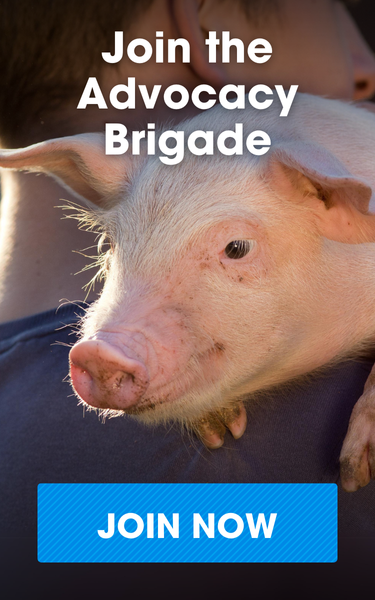
USDA Commits to Taking Action on Inadequate Organic Welfare Standards

After more than three years since hard-fought improvements to the National Organic Program (NOP) were rolled back, U.S. Department of Agriculture (USDA) Secretary Vilsack announced the agency’s intention to take up improved standards that had been addressed under the since-withdrawn Organic Livestock and Poultry Practices (OLPP) rule.
The USDA must revisit these issues in order to address the concerns of animal advocates, farmers and public health experts regarding the weak standards of the NOP.
Finalized in the last days of the Obama administration, the OLPP rule was years in the making and represented a huge victory for animals raised on organic farms. Tens of thousands of ASPCA advocates submitted comments in support of the rule, which closed loopholes in organic animal welfare standards. Those loopholes allowed companies to get away with keeping chickens, laying hens and turkeys on closed concrete “porches” instead of providing them with meaningful outdoor access. The rule also provided more details around important standards like indoor space allowances, environmental enrichments, pain control, transport and slaughter—bringing the USDA Organic program more in-line with consumer expectations of the label.
Unfortunately, under the Trump administration, the USDA decided to delay—and ultimately withdraw—the OLPP rule, leaving millions of animals without meaningful protections against factory farm-like conditions and leaving the organic label at odds with consumer demands. The ASPCA strongly opposed the withdrawal and has continued advocating for reinstatement of the OLPP rule since then.
In a welcome move, Secretary Vilsack announced last week that the USDA will reconsider the prior administration’s basis for withdrawing the OLPP rule and begin rulemaking on a new proposal. Secretary Vilsack has explicitly directed the agency to ensure that the use of porches is prohibited in the new rule.
“We’re encouraged to see the USDA committing to take urgently needed action to address inconsistencies and loopholes in the National Organic Program that have put the lives and welfare of millions of animals at risk,” said Matt Bershadker, ASPCA President and CEO. “This program should be protecting animals raised on organic farms—not allowing cruel farming practices and obscuring the truth about how these animals are raised—and the ASPCA is dedicated to ensuring the USDA’s welfare standards are meaningful for animals and meet public expectations.”
We will continue to follow the new organic rulemaking process very closely and engage with the USDA in the implementation of new animal welfare rules. Please join the Advocacy Brigade to make sure you’re informed and can take action when farm animals need you!

